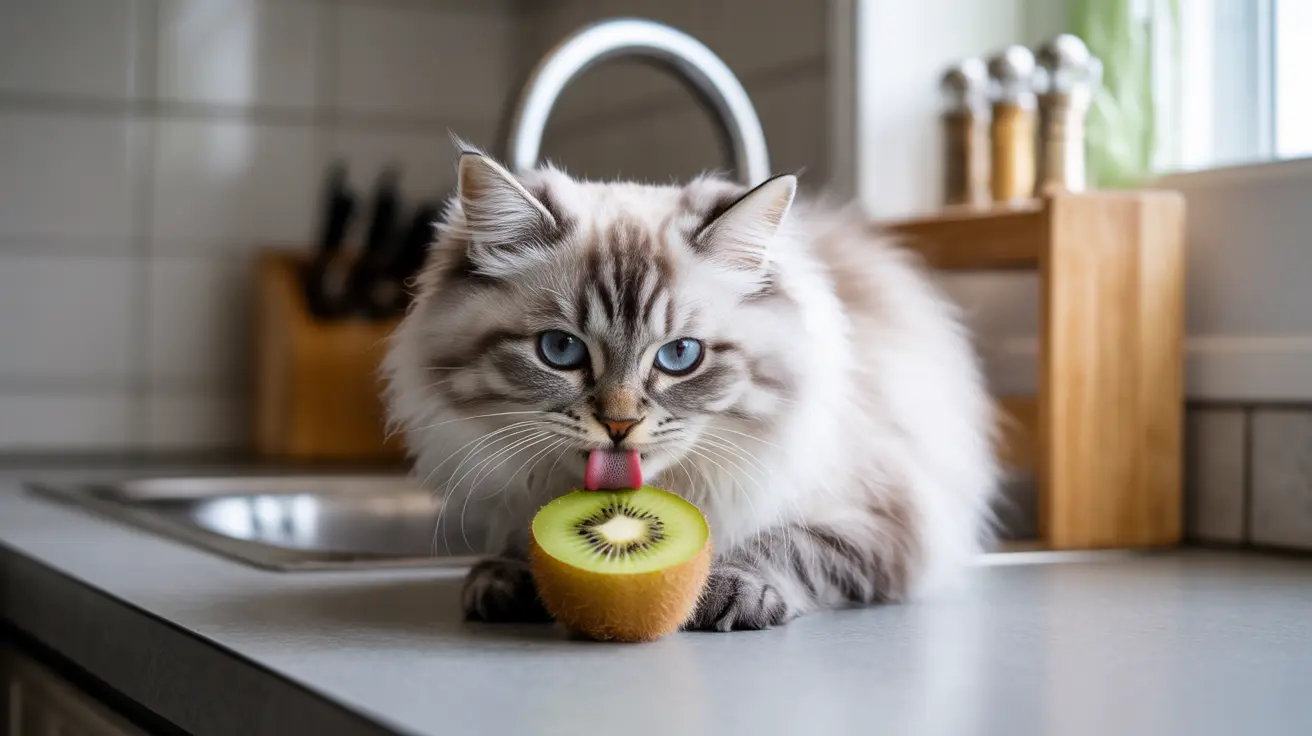If you've ever wondered whether your feline friend can safely enjoy kiwi, you're not alone. While cats are obligate carnivores who primarily need meat-based proteins, many pet owners are curious about sharing fruits like kiwi with their pets. Let's explore everything you need to know about cats and kiwi, including safety considerations, potential benefits, and proper serving guidelines.
Understanding the relationship between cats and kiwi is essential for responsible pet ownership. While kiwi isn't toxic to cats, there are important factors to consider before offering this fruit as an occasional treat.
Safety First: Is Kiwi Safe for Cats?
Kiwi is generally non-toxic to cats when properly prepared and served in moderation. However, certain parts of the fruit require careful attention:
The skin and seeds must always be removed, as they can pose choking hazards or cause digestive irritation. The skin's fine hairs are particularly problematic and could cause oral discomfort or digestive issues.
Potential Risks to Watch For
While kiwi itself isn't dangerous, there are several risks to be aware of:
- Allergic reactions to the actinide enzyme
- Digestive upset from overconsumption
- Choking hazards if not properly prepared
- Blood sugar impacts from natural fruit sugars
Nutritional Benefits of Kiwi for Cats
Though not essential to their diet, kiwi does offer some nutritional benefits when served as an occasional treat:
- High fiber content supporting digestive health
- Natural moisture content aiding hydration
- Vitamins C and K for immune support
- Antioxidants for cellular health
- Minerals including potassium and calcium
How to Serve Kiwi to Your Cat
Proper preparation is crucial for safely offering kiwi to your cat:
- Wash the fruit thoroughly
- Remove all skin and seeds
- Cut into small, bite-sized pieces
- Offer no more than 1-2 pieces at a time
- Limit treats to once or twice weekly
Monitoring Your Cat's Response
When introducing kiwi, watch for these signs of intolerance:
- Vomiting or diarrhea
- Oral irritation
- Loss of appetite
- Unusual behavior or lethargy
Frequently Asked Questions
Can cats safely eat kiwi, and what precautions should I take before giving it to them?
Yes, cats can safely eat kiwi when properly prepared. Always remove the skin and seeds, cut into small pieces, and introduce slowly while monitoring for any adverse reactions.
What are the health benefits of feeding kiwi to my cat in small amounts?
Kiwi provides fiber, vitamins, minerals, and moisture. These can support digestion, hydration, and overall health when offered as an occasional treat.
How should I prepare kiwi properly to avoid risks like choking or allergic reactions in cats?
Thoroughly wash the kiwi, remove all skin and seeds, and cut into small, bite-sized pieces. Start with minimal amounts to test for allergic reactions.
How often and how much kiwi can I give my cat without causing digestive upset or other health issues?
Limit kiwi treats to 1-2 small pieces, once or twice weekly. Never make it more than 10% of your cat's daily food intake.
Why might my cat be interested in kiwi even though they can't taste sweetness like humans do?
Cats may be attracted to kiwi's texture, smell, or simply out of curiosity. Their interest typically stems from novelty rather than taste, as they lack sweet taste receptors.
Conclusion
While kiwi can be a safe occasional treat for cats, it should never replace their regular meat-based diet. Always prepare kiwi properly, serve in moderation, and monitor your cat's response. When in doubt, consult with your veterinarian before introducing any new foods to your cat's diet.






